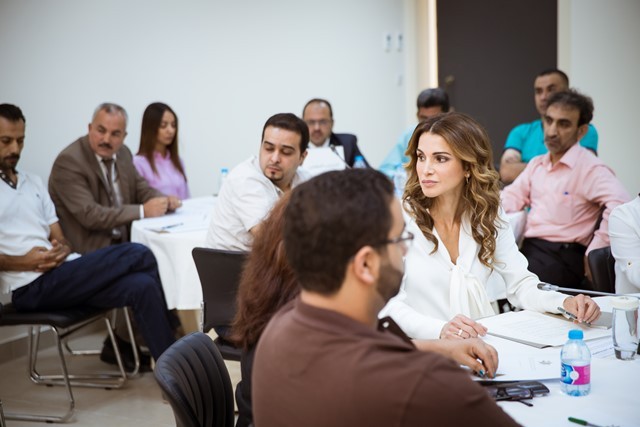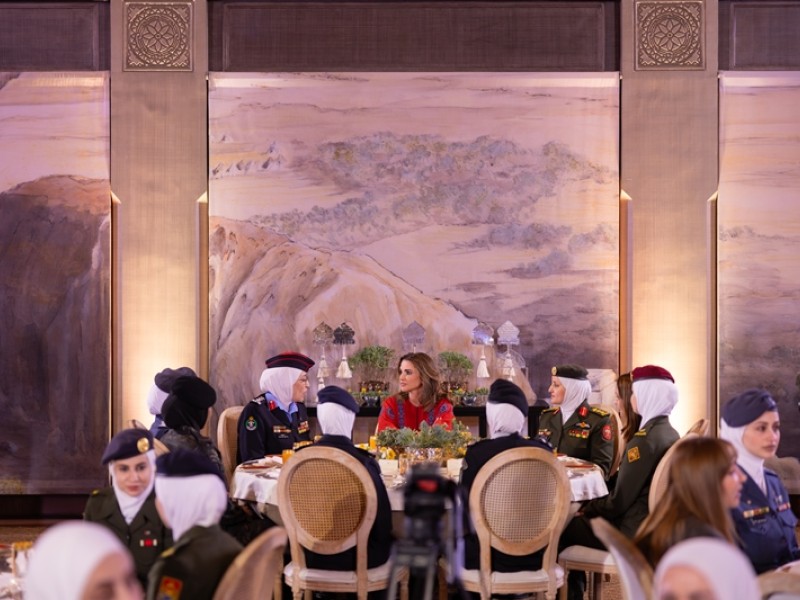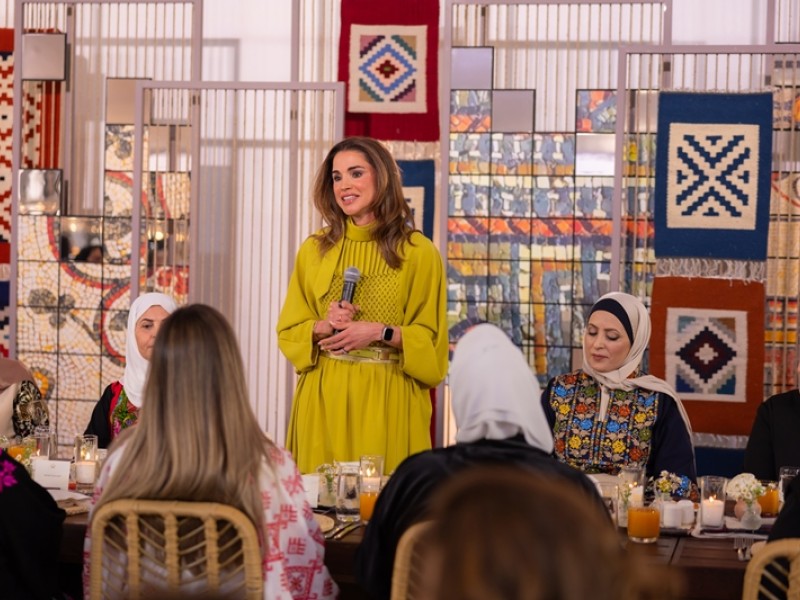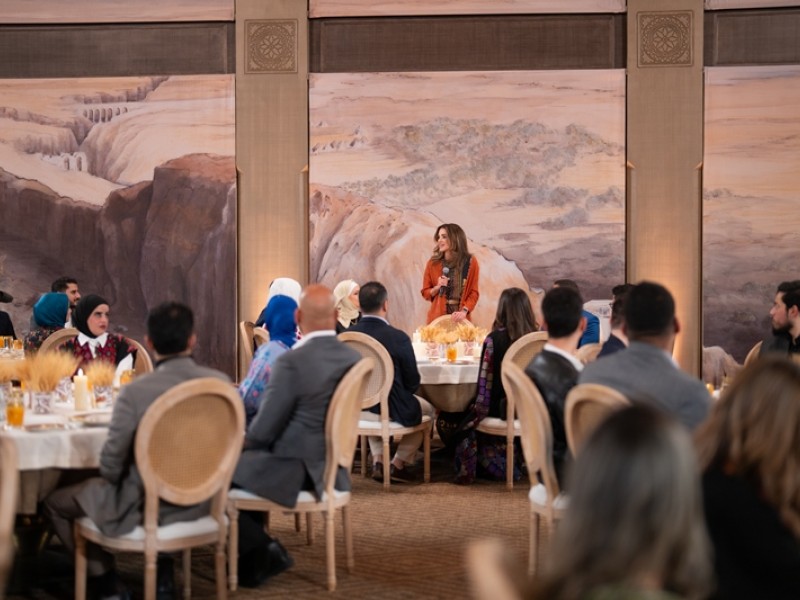Queen Rania on Educational Reform: There Is No Time to Waste

(Office of Her Majesty – Press Department – Amman) Her Majesty Queen Rania said there is no time to waste when it comes to reforming Jordan’s educational system, adding that every year lost without carrying out essential reforms means depriving a large group of students of a good quality education.
The Queen made these remarks on Sunday during a discussion about education challenges at the Queen Rania Teacher Academy (QRTA) with a group of teachers and members of the National Committee for Human Resources Development (HRD).
The group met to discuss recommendations by the committee on early childhood education, curricula and the General Secondary Education Certificate Examination (Tawjihi), teacher training, higher education and vocational training.
The Queen said that although change cannot be achieved overnight, patience is essential in every field except in education, due to fast pace advancements in education around the world with which Jordan must keep up.
Her Majesty highlighted the critical role teachers can play in implementing education reforms, and the importance of empowering them by developing their skills through training. She also called for the need to work with the media and to create pressure groups that can expedite the educational reform process.
She added that due to regional turmoil “education is the best kind of immunity we can give our youth to face the challenges around them,” Queen Rania said.
The Queen listened to teachers and educators describe the challenges they face in their professions, as well as their recommendations for reform.
They discussed the dire need for revamping school curricula to meet present-day needs and standards, while highlighting the importance of reassessing the teacher-hiring process.
During the discussion, participants talked about the importance of early childhood development in shaping children’s intellectual and emotional development. Participants underlined the need to raise society’s awareness about the importance of enrolling children in Kindergarten before they go into first grade.
Participants also expressed their frustration with the general secondary examination (Tawjihi), and questioned its ability to accurately assess students’ aptitude and ambitions. They explained that the exam depends heavily on memorizing material and very little on problem solving.
On vocational training programs, educators unanimously agreed that the ones offered are outdated and attract only the lowest-achieving students. Teachers participating in the discussion said that providing strong vocational training programs can prepare youth for lucrative jobs that meet the job market’s requirements, and ultimately help strengthen Jordan’s economy.
As for higher education, the discussion centered on the fact that criteria for university enrollment are neither compatible with the students interests and aspirations, nor with the job market’s needs. This in turn has led to a drop in the quality of higher education outcomes, and failure to achieve economic development plans. Participants called for restructuring university admission criteria so that they also depend on aptitude tests and interviews, rather than solely on students’ Tawjihi scores.
Journalists present at the discussion also shared their experience in covering Jordan’s education shortcomings, and how educational institutions and Jordanian citizens responded to their arguments.
The discussion follows recommendations for education reform issued by the HRD Committee, which was formed in April 2015, after His Majesty King Abdullah tasked former Prime Minister Abdullah Ensour with developing an integrated, comprehensive and strategic system for human resources development.
Featured
Queen Rania's official website
This website does not support old browsers. To view this website, Please upgrade your browser to IE 9 or greater
Your browser is out of date. It has known security flaws and may not display all features of this and other websites. Learn how to update your browser



